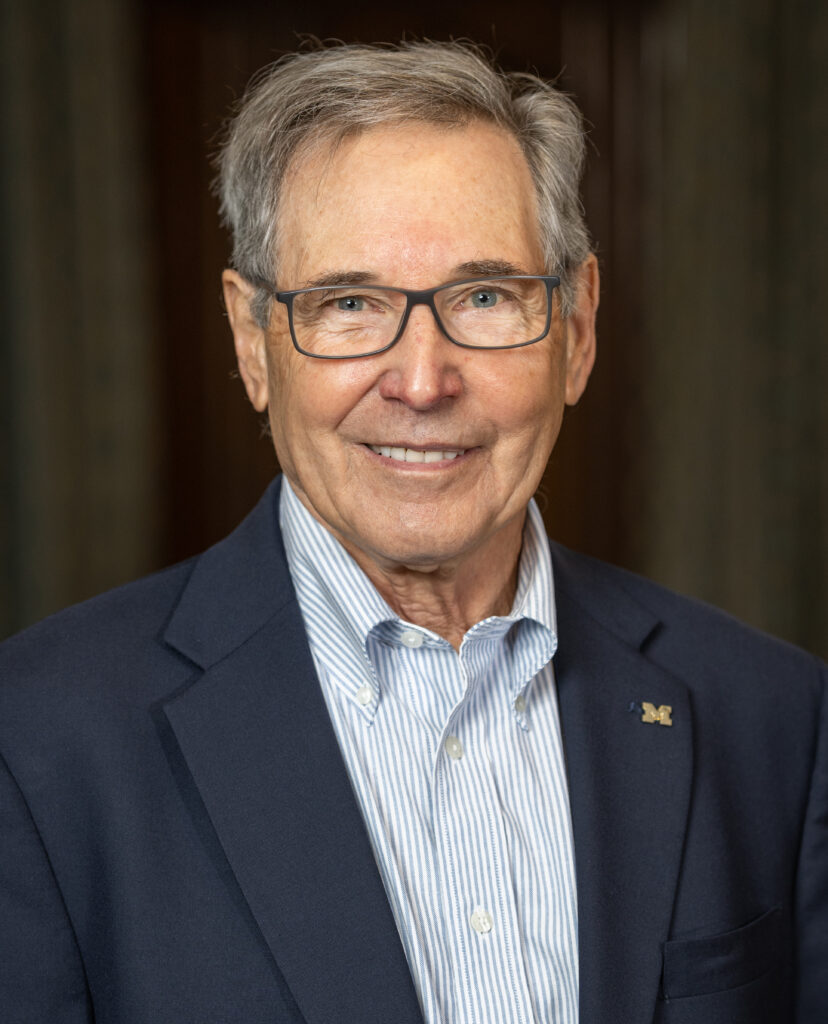$100,000 gift endows teaching faculty support fund inspired by David Chesney’s socially conscious initiatives

A gift of $100,000 from the Daniel E. Offutt III Charitable Trust has been made to provide additional support for lecturers in CSE. The gift will form the David Chesney Lecturer Support Fund, named for Toby Teorey Collegiate Lecturer David Chesney, and will provide resources for teaching faculty, enabling development of new efforts to promote social impact, including broadening participation in computing.
The late Mr. Offutt graduated from the University of Maryland and received an MBA from Columbia University in 1965. His career was as a stock trader. His longtime friend and colleague, Richard Orenstein, made the gift on behalf of the Offutt Trust.
“In my first conversation with David, he spoke about his course work and the direction of helping give challenged individuals better computer access,” said Mr. Orenstein. “Then, having invited me to participate in several of his classes, I saw the emphasis that he places on projects that further assist others. That direction inspired me as Trustee of the Daniel E. Offutt, III Charitable Trust, to support the efforts of David and other teaching faculty at CSE.”
Chesney has a long history of engaging his students in projects for the greater good. His ENG100 course introduces students to computer science and requires that their projects aim for social relevance. His upper level courses are centered around projects in which students build software systems that make use of new technology and address a disability or illness. This has included using the Microsoft Hololens as an augmented reality system for surgeons, and developing technical aids for those who are blind, and for children who are on the autism spectrum or are born with cerebral palsy. Through a relationship with Mott Children’s Hospital, many of these projects are put to therapeutic use. In the Spring/Summer of 2020, Chesney’s course focused on COVID-19.
“I am deeply honored by the endowment in my name from the Offutt Trust created by Dick Orenstein,” said Dr. Chesney. “Dick has been an enthusiastic and knowledgeable contributor to the course ‘Software for Accessibility’ (EECS 495) over the past few years. It is gratifying that these funds are intended to both continue work towards social good, and to help other Lecturers, both present and future.”
Teaching faculty in CSE have all made outstanding contributions to these causes. The 21 lecturers in the department, representing 23% of CSE’s total faculty, handle a critical portion of the instructional load for early computer science and engineering required courses. Thanks to this, lecturers are in the unique position to directly oversee a number of efforts to build a more supportive pipeline for new students.
Recently, teaching faculty have led several such efforts to improve student experience in the program’s introductory courses, including EECS 110, 183, 203, and 280. Lecturers including Bill Arthur, Laura Burdick, Kimberly Khalsa-Diaz, and Amir Kamil have piloted key initiatives including expanded discussion and lab sections with closer instructor access, semester-long student mentorship programs for new students, coursework that makes use of real-world examples that highlight the social impact of computing, and improved class handouts to guide notetaking and study. Kamil has also overseen a fairer student instructor hiring and training process, resulting in a 59% proportion of female student instructors in introductory courses.
These and other teaching faculty-led efforts to both broaden access to the field and impart a socially conscious, global mindset in computing students will be impacted by this gift.
“Great things happen in CSE when our teaching faculty apply innovative energy toward their educational ideals,” said Michael Wellman, the Richard H. Orenstein Division Chair of Computer Science and Engineering. “Dick Orenstein’s generous gift enables CSE to support this initiative on a sustained basis, and provides a permanent reminder of the example set by David Chesney’s career of promoting computing for social good.”
 MENU
MENU 
